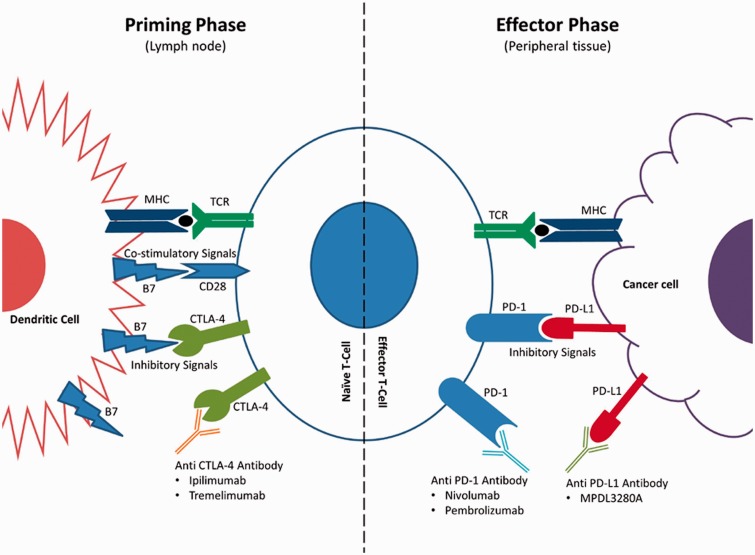Figure 1.
Checkpoint blockade in tumor immunotherapy. T-cells initiate the immune response though recognition of antigenic peptides presented by the MHC on the surface of antigen-presenting cells and cancer cells through their TCR. TCR engagement alone is insufficient to turn on a T-cell response, and additional co-stimulatory signal via B7 are required for cytokine production, targeT-cell lysis and effector cell responses. B7 protein can pair with CD28 on T-cells, leading to amplification of TCR signaling, or CTLA-4 on a T-cell inhibiting T-cell activation. PD-1 primarily inhibits effector T-cell activity in the effector phase within tissue and tumors—unlike CTLA-4, which mainly modulates early steps in T-cell activation. PD-1 inhibitory receptor is expressed by T-cells during long-term antigen exposure and results in inhibition of T-cells on interaction with PD-L1, which is expressed in the tumor microenvironment. Immune checkpoint blockade via monoclonal antibodies leads to preferential activation of cancer-specific T-cells and revival of tumor immunity (MHC: major histocompatibility complex; TCR: T-cell receptor; CTLA-4: cytotoxic T-lymphocyte-associated antigen 4; PD-1: programmed death 1; PD-L1: programmed death-ligand 1).

